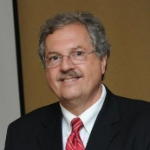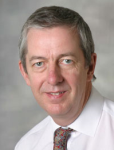AMR DxC experts
Our international AMR DxC Judging Panel
|
Daniel Berman Lead, Longitude Prize at Nesta, London, UK Daniel leads the Longitude Prize. He most recently worked for the World Health Organization in Ethiopia on a local pharmaceutical production project and was the general director of Médecins Sans Frontières (MSF) Southern Africa office in Johannesburg, South Africa. He brings to Nesta more than 15 years of international public health experience as well as expertise in stimulating and developing innovation in both medicines and diagnostic products. He also has experience in projects to create uptake of new health products and technologies. |
 |
|
Dr Gyorgy Abel Director of Clinical Chemistry, Molecular Diagnostics & Immunology, Laboratory Medicine, Lahey Hospital & Medical Center, Burlington and Harvard Medical School, Boston, MA, USA Dr Gyorgy Abel is the Director of Clinical Chemistry and Molecular Diagnostics at the Lahey Hospital & Medical Center in Burlington, Massachusetts. He also serves as Instructor in Pathology, part time, at Harvard Medical School. Gyorgy received his M.D. and Ph.D. degrees at the University of Debrecen Medical School in Hungary. He completed post-doctoral training at the Brigham and Women’s Hospital, then residency at the Massachusetts General Hospital in Boston, US, and received board certifications in Clinical Pathology and Molecular Diagnostics. He made significant contributions to hepatitis C virus research by demonstrating the use of LDL receptor by the virus as a port of entry into hepatocytes. Gyorgy has held office in multiple professional organizations in the U.S.; and he is an Overseas Fellow of the Royal Society of Medicine, UK. |
 |
|
Dr Penny Wilson Innovation Platform Leader, Stratified Medicine, Innovate UK, London, UK Dr Penny Wilson, as part of Innovate UK’s Healthcare team, oversees the organisation’s Stratified Medicine programme aiming to maximise the potential of Stratified Medicine in the UK. Penny also led the Infectious Disease programme aiming to reduce the morbidity, mortality and economic burden due to infectious diseases in humans and animals. Penny has spent 25 years in the Diagnostics Industry in a variety of senior technical and strategic roles. She has an in-depth knowledge of point-of-care diagnostic systems from both a technical and societal perspective and on the challenges of technology integration and adoption. Penny’s expertise spans human, animal and plant diagnostics and she has considerable expertise in assessing the diagnostic and healthcare needs in both the developed and developing world. Appointments have included Senior Director of Advanced Technology Development and Director of Technology Assessment and Acquisition for Diagnostic Products Corporation (now part of Siemens Healthcare). In Global Health Penny has advised the Bill & Melinda GATES Foundation, the Rockefeller Foundation and the African Union. |
 |
| Professor Stephen Henry Gillespie
Sir James Black Chair of Medicine, University of St Andrews, UK Stephen Gillespie has worked in Kenya researching the relationship between malaria and lower respiratory tract infection and the prevalence of parasitic infection in children in Kilifi, Kenya. He has investigated a cholera epidemic and vaccine failures in Guerrero, Mexico. He has been working in collaboration with colleagues at Kilimanjaro Christian Medical Centre since 1988 where he has, variously, studied respiratory and parasite diagnostics and novel antimalarials, anti-helminthics and anti tuberculosis agents. His main research activity is in the area of tuberculosis drug development. For the last twenty years Stephen Gillespie has been involved in various aspects of tuberculosis drug development. This has included the evaluation of new candidate antituberculosis agents in vitro. This work has expanded into studies of the molecular mechanisms of resistance and the development of model systems to measure the fitness deficits found in resistant strains. He has been involved in the development of fluoroquinolones for tuberculosis having performed early bacterial activity studies and clinical trials of ciprofloxacin. More recently he has led the group working on the clinical development of moxifloxacin in collaboration with the Global Alliance for TB Drug Development as Chief Investigator of the REMox TB study. He is also one of the three Chief Investigators of the PanACEA consortium that is developing Europe and Africa's clinical trials capacity. |
 |
|
Professor Susan Welburn Professor of Medical and Veterinary Molecular Epidemiology, Vice-Principal Global Access, The University of Edinburgh, UK Professor Welburn's research has focused on the interactions between parasites and their vectors and hosts that lead to transmission of human sleeping sickness. This has involved a dissection of the mechanisms of innate resistance of vectors to parasite infections and the complex interactions between host, vector and parasite that result in parasite differentiation, disease transmission and epidemiology and control. Recent research has concentrated on the design and use of molecular diagnostic tools for the study and management of sleeping sickness and animal trypanosomiasis, and integrated control methodologies for control of the Neglected Zoonoses. This has encompassed research ranging from ‘grass-roots’ fieldwork in Africa to laboratory-based dissection of the problems at the gene level. Professor Welburn graduated with a BSc from the University of the West of England in 1984, and gained a PhD at University of Bristol in 1991. She started her academic career at the Tsetse Research Laboratories in Bristol, and worked for several years at the University of Glasgow, before joining the University of Edinburgh in 2000. She currently has projects in Uganda, Kenya, Nigeria, Zambia and Tanzania, focussing on interventions for disease control. |
 |

